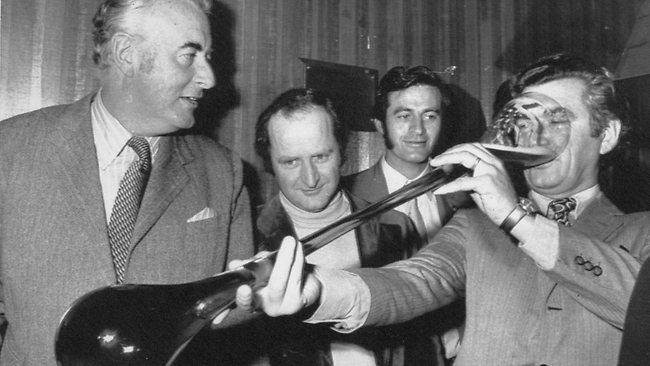What really interests the voters is just a click away
MANY politicians may be surprised at what people want to know about them via Google searches.

DOES Julia Gillard use botox? Is she a communist or a freemason? What is her view on gay marriage? What is Tony Abbott's brand of budgie smugglers, his net worth or his view of Opus Dei?
Incredibly, these are among the most frequently searched queries about the Prime Minister and the Opposition Leader, according to an authoritative source of public opinion.
Each year, political parties, businesses, lobbyists, community groups and the public service spend millions of dollars on polling and focus groups to find out what people really think. They use the results to craft policies, design campaigns and better target key messages to tap more effectively into public sentiment.
In the realm of politics, there is another way to find out what interests millions of voters by using a research tool that is practically free and is simple to use: Google.
If you enter a politician's name into the internet search engine and leave it hanging for a second without clicking the search button, Google will suggest what you may be looking for. If you type in a name followed by a single letter, many more common searches by other users will appear. It is Google's way of being helpful by anticipating what you are trying to find out.
In doing so, Google is unwittingly publishing the thoughts of millions of Australians, which may help to reveal what they think about our politicians.
The appearance of the most frequently searched terms, Google says, are "algorithmically determined based on a number of purely algorithmic factors (including popularity of search terms) without human intervention". The algorithm "uses over 200 signals" as it crawls through the internet at almost the speed of light to "decide" the most "relevant" answers for your query. This "auto-complete" data, called Google Instant, may change on a daily basis. Another tool, Google Insights for Search, reveals the longer-term trend of search queries.
For example, if you enter "Julia Gillard" into Google, you are prompted with common searches such as "email", "jokes" and "biography". But if you scroll down further you also find: "carbon tax" and "gay marriage". Add a letter after her name and more bizarre queries such as "botox" and "freemason" appear alongside "earlobes", "communist" and others too nasty to mention. It suggests people are turning to Google to test assumptions or seek answers about Gillard.
Enter "Tony Abbott" and after "quotes" and "biography" you find his key pledge: repealing the "carbon tax". Delve further and you find "ironman", "hair" and various "rumours" alongside "sister", "sister gay" and "gay marriage".
Abbott's sister recently revealed she is a gay woman. He opposes gay marriage.
Google also provides insights into public perceptions of other politicians. Wayne Swan's "qualifications" and his controversial essay in The Monthly interest voters. Deputy Opposition Leader Julie Bishop is known for her "death stare". Voters seem intrigued by the "rumours" and "gossip" surrounding minister Bill Shorten while others are looking for former Liberal leader Malcolm Turnbull's "weight loss" and "diet" secrets. Many voters find opposition education spokesman Christopher Pyne "annoying".
I doubt opposition climate Greg Hunt likes his "thesis" being most commonly associated with his name: "A Tax to Make the Polluter Pay." Bob Brown would surely prefer to be remembered for leading the Greens rather than being on duty at a London hospital when the dead body of rock legend Jimi Hendrix was brought in. Greens leader Christine Milne is no doubt proud of her "gardening blog".
Retired politicians are not immune from Google's often shallow judgment on the sum total of their careers. Kevin Rudd is most remembered for his "apology speech", his active "twitter" account and his infamous "swearing" video posted on YouTube. John Howard has people wondering about his "height" and recalling his signature "GST" reform. Paul Keating's name is linked to his "unknown soldier" and "Redfern" speeches together with his "Mabo" legislation and "republicanism".
It can also be cruel. Bob Hawke, despite his landmark reforms and four election wins, is remembered for downing a yard of ale (2.5 pints) in the record time of 11 seconds while a student at Oxford. Enter Hawke's name and you get: "drinking record", "yard glass" and "beer". The second most popular search concerning Malcolm Fraser is the loss of his "pants" at a Memphis hotel in 1986. Gough Whitlam, much to his chagrin, will forever remembered for his "dismissal" from office in 1975.
It may resemble nothing more than a parlour game, but it is revealing. Give it a try. You may be surprised by what you find out. Or it may simply confirm what you already suspected.
Politicians should be mindful that the prejudices and pre-conceived notions of voters may be far from the idealised view they have of themselves and may be impossible to shift.



